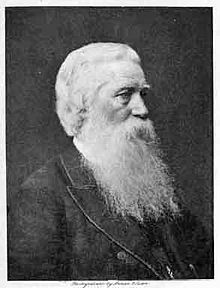
by Bret Capranica | Jan 1, 2014 | Featured Articles, Reading
What is your approach to systematically reading through Scripture this year? You don’t necessarily have to have an annual plan that gets you through the whole thing in one year, but most find it most beneficial to have an intentional approach to Bible intake. Here’s a few suggestions: Jim Ellif offers an approach that will give you an excellent, slow, methodical approach to what I think is an excellent way to engage with Scripture in an in-depth manner. I would recommend this plan if you don’t have a significant in-depth approach to Bible study. I love reading through Scripture each year. My regular teaching of Scripture has me studying Scripture at a slow and in-depth pace. I find it very helpful to have a reading plan that takes me through all of the Bible in a year, reminding me of the big picture of each book and of the Bible as a whole. If you are considering an annual trek through the Scriptures, you may find some of the other approaches linked here to be of use. Here are a number of Bible reading plans: Begin in Genesis and read about 4 chapters a day, 5 on Sunday. I forget where I first heard about this one, but it was the first plan I used years ago, and it proved very helpful. Discipleship Journal Annual Plan. I’ve used this plan for about the past four years. It keeps you in the Gospels all year, the Old Testament writings all year, and also takes you through the rest of the Old Testament and New Testament within the year. I like staying...

by Bret Capranica | Oct 1, 2013 | Featured Articles, Presidential History, Time/Life Management
Mixing two of my interests (Presidential History and productivity), I was intrigued by this Vanity Fair article on President Obama. I’m quite sure it was part of the 2012 election public relations strategy, but I did find a few interesting approaches from the current President to streamline decision making, keep himself focused, structure meetings, and working with people. Just two short excerpts: Routine and Its Impact on Decision-Making This time he covered a lot more ground and was willing to talk about the mundane details of presidential existence. “You have to exercise,” he said, for instance. “Or at some point you’ll just break down.” You also need to remove from your life the day-to-day problems that absorb most people for meaningful parts of their day. “You’ll see I wear only gray or blue suits,” he said. “I’m trying to pare down decisions. I don’t want to make decisions about what I’m eating or wearing. Because I have too many other decisions to make.” He mentioned research that shows the simple act of making decisions degrades one’s ability to make further decisions. It’s why shopping is so exhausting. “You need to focus your decision-making energy. You need to routinize yourself. You can’t be going through the day distracted by trivia.” The self-discipline he believes is required to do the job well comes at a high price. “You can’t wander around,” he said. “It’s much harder to be surprised. You don’t have those moments of serendipity. You don’t bump into a friend in a restaurant you haven’t seen in years. The loss of anonymity and the loss of surprise is an...
by Bret Capranica | Sep 13, 2013 | Personal
Here’s a few shots from what we think was one of our best family vacations yet: New Orleans, LA; Santa Rosa, FL; Franklin, TN; St. Louis, MO.

by Bret Capranica | Sep 11, 2013 | Christian Living
Here are a few notable quotes from John Piper’s chapter on John G. Paton, nineteenth century missionary in the South Pacific (from the book, Filling Up the Afflictions of Christ). I encourage you to read these quotes and consider how we approach the difficulties of our own lives from a God-centered perspective: Paton’s ministry’s lasting effect Today, over a hundred years after the death of John Paton, about 91 percent of the population of Vanuatu identifies itself as Christian, perhaps 14 percent of the population being evangelical (57). Responding to cynics who told him not to go: A certain Mr. Dickson exploded, “The cannibals! You will be eaten by cannibals!” . . . . Paton responded: “Mr. Dickson, you are advanced in years now, and your own prospect is soon to be laid in the grave, there to be eaten by worms; I confess to you, that if I can but live and die serving and honoring the Lord Jesus, it will make no difference to me whether I am eaten by cannibals or by worms; and in the Great Day my Resurrection body will rise as fair as yours in the likeness of our risen redeemer” (58). Various quotes: I do not pretend to see through the mystery of such visitations – wherein God calls away the young, the promising, and those sorely needed for his service here; but this I do know and feel, that, in the light of such dispensations, it becomes us all to love and serve our blessed Lord Jesus so that we may be ready at his call for death and eternity (61). My...

by Bret Capranica | Sep 10, 2013 | Featured Articles, Pastoral Ministry, Preaching
For the past three summers, I have preached overview sermons through the Old Testament. Three years ago I spent the summer preaching through the Pentateuch (first five books of the Bible). Last year I taught Joshua through the Kings. This summer I just completed a series through the Major Prophets (Isaiah, Jeremiah, Ezekiel, and Daniel). To be honest, these are some of the most difficult sermons for me to prepare and to preach. The difficulty in study lies in the challenge of covering the entirety of large books in such a short time. Teaching these books is equally daunting in trying to cover large sections of very rich material in a short amount of time and often in what seems such a cursory manner. And yet, every summer, I receive a host of positive feedback from many in our congregation as to the benefit they derive in these overview series. Some have expressed their lack of exposure to preaching through the Old Testament. Others have indicated that they have never seen how a particular book was put together. Still others have mentioned how refreshing it has been to see the central theme of each book and how these books relate to one another. We have found much benefit from the past 3 years of studying the Old Testament together. Why should a preacher/teacher spend time preaching/teaching overviews of biblical books? What steps are most helpful in studying for these sorts of messages? What principles govern how you teach them? Let me see if I can help you with a few pointers from what I have been learning over the...











